Schedule
Friday, October 17th
The talks on October 17th will all be given at the Orpheum Lichtspielhaus. A downloadable version of the schedule will be provided soon.
| 9:00 | Registration |
|---|---|
| 10:00 | Back to the Web Aaron Parecki |
| 10:45 | Break |
| 11:00 | In the DOM, no one will hear you scream Mario Heiderich |
| 11:45 | Break |
| 12:00 | Open Source Design needs Collaboration Jan-Christoph Borchardt |
| 12:45 | Lunch break |
| 14:15 | DENY ALL: why rendering the firewall obsolete is an issue of social importance Adam Ierymenko |
| 15:00 | Break |
| 15:15 | Indie Design Laura Kalbag |
| 16:00 | Break |
| 16:15 | Breaking News: The otherizing effect of digital content curation Curtis Wallen |
| 17:00 | Break |
| 17:15 | Time Jeremy Keith |
| 18:00 | Time for having fun all over the city ;) |
Saturday, October 18th
The distribution of the creator units to the different locations will be determined at short notice during the first conference day.
Scene-setters, talks & creator units
border:none is shaped by our outstanding scene-setters and their individual approaches towards the overarching topic, the decentralization of the web. It's them who will guide you through the event — so better get used to their faces and learn what they prepared for you!
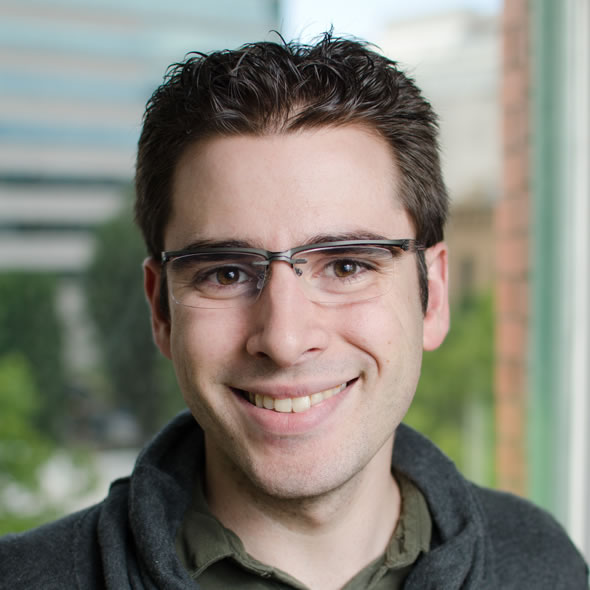
Aaron Parecki
Aaron Parecki is CTO of the Esri R&D Center, Portland, and the co-founder of IndieWebCamp. He is known for having tracked his location at 5 second intervals since 2008, and for co-founding Geoloqi, a location-based software company acquired by Esri in 2012. His work has been featured in Wired, Fast Company and more. He made Inc. Magazine's 30 Under 30 for his work on Geoloqi.
- On the web
- aaronparecki.com
- On Twitter
- @aaronpk
«Back to the Web»
Talk — 10:00–10:45, 17 Oct
In the beginning, the Web was a simple thing. A bit of HTML, running on a server you probably had root access to, and maybe even had running under your desk. Fast forward 20 years, and most of the Web's content resides in silos, like Twitter, Facebook and Instagram.
Our siloed experience of the Web poses huge challenges for the longevity, integrity, and ultimately ownership of the content we create. Aaron Parecki will talk about data ownership, identity and the IndieWeb, a movement that is about taking back ownership of one’s own identity and data through Microformats, IndieAuth, Webmention and more.
Creator unit — 9:00–17:00, 18 Oct
This creator unit will help you learn about ways to empower yourself to own your data, create and publish content on your own site, and only optionally syndicate to third-party silos. You will be guided through taking your existing website and adding just enough so that you can join IndieWeb conversations.
Topics covered will be:
- IndieAuth
- Microformats
- Webmention
- Syndication / POSSE
- Receiving replies from syndicated posts
By the end of the creator unit, you will be able to write a post on your own website and have it show up as a comment on someone else's post in real time.
Requirements
You should come to the workshop with an existing website, or at least an existing domain name. Some familiarity with HTML is required, and you should be comfortable writing code in a language of your choosing. No particular programming language or environment is required, as long as you are familiar with it.
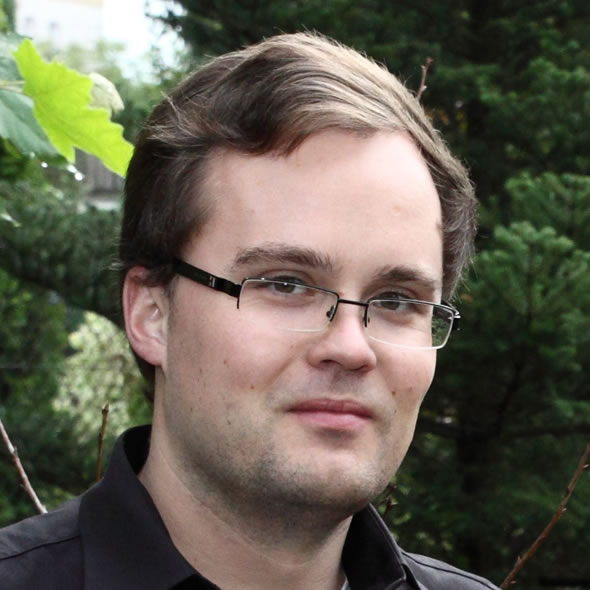
Mario Heiderich
Mario Heiderich is leading Cure53, a Berlin based security company that is specialized on attack and defense of modern JavaScript-heavy websites and applications.
- On the web
- cure53.de
- On Twitter
- @0x6D6172696F
«In the DOM, no one will hear you scream»
Talk — 11:00–11:45, 17 Oct
Dezentralization often means, that more and more functionality is sourced into the client. And the client needs to learn to do more and more on its own, without the help of its «big brother», the server. That includes security — and security on the client is hard and different from what we know.
This talk is about the DOM and its more twilight areas. We'll have a look at the weird parts and talk about where and why this might be security critical and affect your precious online applications, browser extensions or packaged apps. To understand the foundations of what the DOM has become by today, we'll further explore the historical parts — who created the DOM, what was the intention and how fought dirty about it during the browser wars.
Finally, we'll see a DOM based attack called DOM Clobbering. An attack, that is everything but obvious and affected a very popular and commonly used Rich Text Editor. Be prepared for a lot of tech-talk as well as fear and loathing in the browser window. But don't shed no tears, there's a tool that fixes the security crazy for you and this talk will present it.
Creator unit — 9:00–17:00, 18 Oct
So, security in the DOM, what is this and what are the risks? The creator unit will cover this topic, shed bright light on HTML5, SVG, the DOM, ES5 and ES6, AngularJS and co. and all the new things in our browsers and web apps that make us do more with less code.
If you are a programmer working on modern web apps, a security person eager to break what's hot and new or simply a person with an interest in what breaking and fixing modern web applications looks this session might be for you. But be aware, there's lots and lots of code and tech-talk in here.
Requirements
If attendees had a laptop and one or two browsers at hands to play with it'd be good.
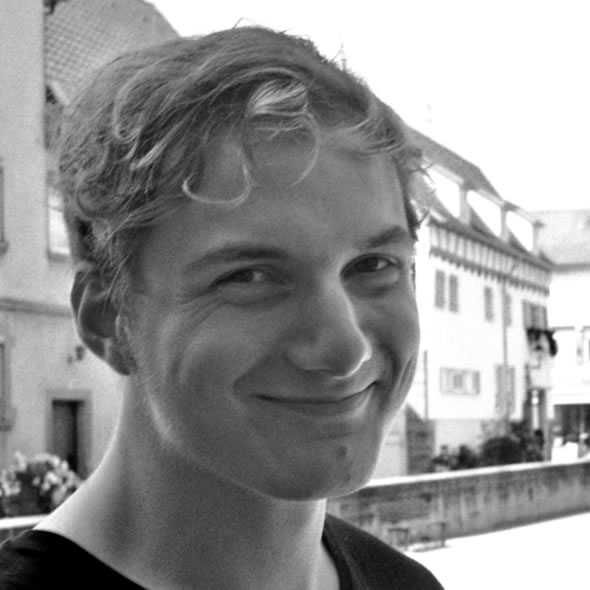
Jan-Christoph Borchardt
Jan-Christoph Borchardt is an open source designer, currently focused on ownCloud. He worked with several open source software projects including Unhosted, Terms of Service; Didn’t Read, Litewrite, Shotwell (Ubuntu's photo app), Diaspora and more. Jan also regularly collaborates with design universities to get students involved in open source.
- On the web
- jancborchardt.net
- On Twitter
- @jancborchardt
«Open Source Design needs Collaboration»
Talk — 12:00–12:45, 17 Oct
Open Source Design is hard. Most often you are the only designer on the project, or there are none at all. More and more it becomes clear to projects that proper design is important, and open source projects have designers or are even partly design-led.
Then, a good User Experience in Open Source goes beyond one project. Especially on the web, people use a wide variety of different services. With the open source community we can collaborate between projects. Use open standards and protocols to allow people to communicate. Without being locked in to one specific solution.
We are not startups fighting against each other — we need to work together to build a better web.
Creator unit — 9:00–17:00, 18 Oct
In this creator unit we will work on how to link up open source projects and collaborate better. Let's look at the open protocols we can make the projects communicate with and the standards we have in common.
We also need to build a stronger Open Source Design community, exchange how we work, and how to make Open Source Design even better.
Requirements
Not only developers with a project can participate. It's also important to try and get your favorite open source app more integrated with others and help the developers to find what is needed for that.
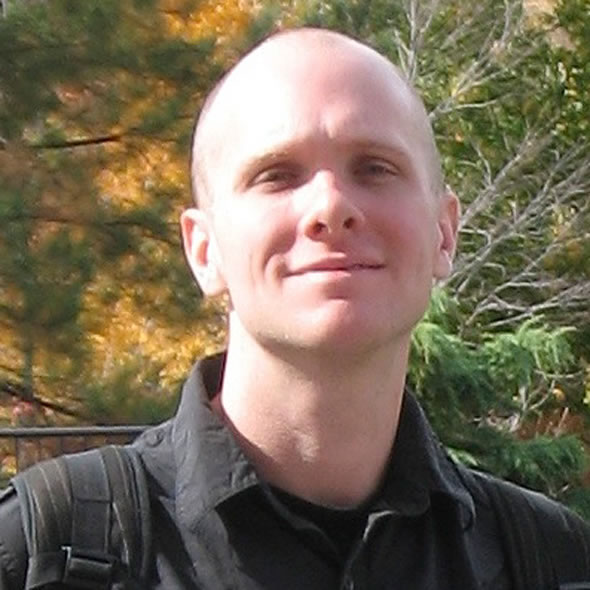
Adam Ierymenko
Adam has been programming since shortly after he could talk, and is interested in basically everything having to do with science, technology, and the philosophical issues surrounding it. He also loves the often crazy world of technology entrepreneurship. Lately he's been working on network virtualization technologies and thinking a lot about how the Internet works. When he's not doing these things, he mostly spends time with his family and teaches his one year old daughter how to stack blocks. He lives in Southern California.
- On the web
- www.zerotier.com
- On Twitter
- @adamierymenko
«DENY ALL: why rendering the firewall obsolete is an issue of social importance»
Talk — 14:15–15:00, 17 Oct
Communication theorist Marshall McLuhan once stated that "the medium is the message." By this he meant that the structure of the medium affects the nature of the social and economic systems that evolve to inhabit it. The Internet was envisioned as an open many-to-many communications network, but architectural limitations and security issues have instead led to its deployment as a fundamentally hierarchical network where direct horizontal communication between equals is technically difficult. I argue that the shape of the Internet as currently realized has been a primary driver of monopolization and centralization, and that deperimeterization — realizing the flat address space design originally planned by its creators — is fundamental to reversing these trends.
Creator unit — 9:00–17:00, 18 Oct
In the deperimeterization unit we will explore how already existing simple open protocols and systems might become peer to peer if the Internet allowed it. While these are fundamentally technical problems, in the creator unit we will focus on their design and media implications. We will brainstorm and perhaps even prototype new and significantly more democratic forms of media that might grow to inhabit an Internet whose participants are not blocked from directly connecting to one another.
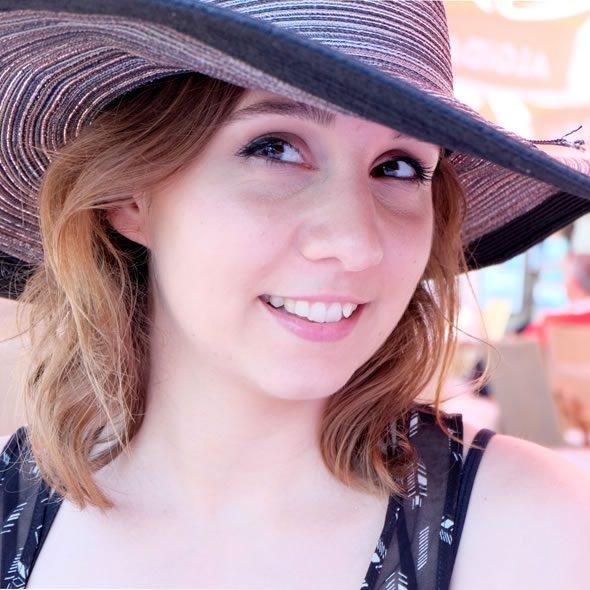
Laura Kalbag
Laura Kalbag is a designer with a thing for the web. She works at ind.ie, creating design-led, free and open alternatives to technologies that are funded through the exploitation of users' data. She tends to harp on about web development, design theory, web fonts, responsiveness and walks with her big fluffy dog, Oskar.
- On the web
- laurakalbag.com
- On Twitter
- @laurakalbag
«Indie Design»
Talk — 15:15–16:00, 17 Oct
The decentralisation of the web is impossible for products whose business models are based on the retention, and exploitation, of their users' data. We need to create alternatives with sustainable business models that can survive in a decentralised world. Whilst it might be easier to make money from users’ data, we must operate on a more ethical basis in order to create genuine alternatives.
Considerate design and user experience is vital to making alternatives to the current mainstream tech. We don’t want our alternatives to only be available to a geek elite. Accessibility and diversity will make us design better solutions, and help new tech spread beyond enthusiasts. Accessible sharing and educating will also help us promote sustainable practices in our industries and communities.
Creator unit — 9:00–17:00, 18 Oct
Using the ind.ie manifesto for a basis, we'll discuss the impact that independence, sustainability, diversity and leading with design have on our current and future projects. After introducing ourselves, and the projects that we're working on, we'll consider how the goals of beautiful, free, social, accessible, secure, and distributed products could affect our working practices.
Following the discussions, we'll move on to a practical design session, breaking into smaller groups. Each group will take on a project focusing on the redesign of a sustainable alternative to a product that exists in the mainstream. In our groups, we'll design the product at a high-level, making business, design and development decisions in line with decentralised, ethical and sustainable practices.
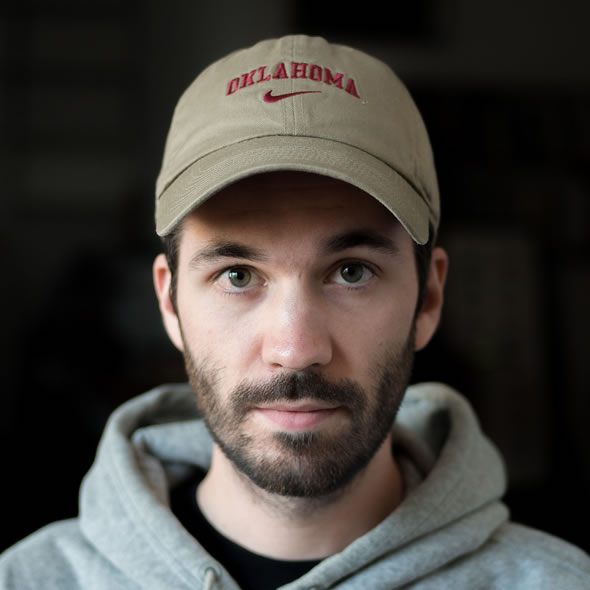
Curtis Wallen
Curtis Wallen is a visual artist, journalist, and researcher with a diverse practice that explores identity, memory, surveillance, and the cultural implications of their intersections.
In 2013, Wallen began working on a digital and physical alias called Aaron Brown as part of an ongoing project: «In God We Trust, All Others We Monitor: The Story of Aaron Brown.» The Story of Aaron Brown has been featured internationally by the BBC, The Atlantic, and Süddeutsche Zeitung.
Wallen lives and works in Brooklyn, New York.
- On the web
- curtiswallen.com
- On Twitter
- @curtiswallen
«Breaking News: The otherizing effect of digital content curation»
Talk — 16:15–17:00, 17 Oct
Social, political, and geographic compartmentation occurs on the Internet both organically and inorganically. While the Internet has immense potential to erase borders, a user's personal networks are often limited to people that user already knows, or people similar to her. This occurs as a result of conscious and unconscious personal decisions and the efforts of corporations to personalize the Internet on a per user basis. Such a level of content curation crafts an Internet to reinforce one's thoughts and biases, and push us all further apart.
The unique properties of the Internet can be leveraged against this human tendency to otherize, and the combination of art and technology play an important role in that endeavor.
Creator unit — 9:00–17:00, 18 Oct
With a general focus on exploring the possibility of images to connect across cultures, the creator unit team will collaborate in a guided lightning brainstorming session and then go out into the city to actually make artworks. No prior artistic experience necessary! The idea is to develop a collaborative art project that will extend outside the border:none conference.
Requirements
Curtis' current plan is to involve some use of Instagram and/or Twitter in the creator unit.

Jeremy Keith
Jeremy Keith is an Irish web developer living in Brighton, England, where he works with the web consultancy firm Clearleft. He wrote the books DOM Scripting, Bulletproof Ajax, and most recently, HTML5 For Web Designers. His latest project is Huffduffer, a service for creating podcasts of found sounds. When he's not making websites, Jeremy plays bouzouki in the band Salter Cane.
- On the web
- adactio.com
- On Twitter
- @adactio
«Time»
Talk — 17:15–18:00, 17 Oct
This thing all things devours:
Birds, beasts, trees, flowers;
Gnaws iron, bites steel;
Grinds hard stones to meal;
Slays king, ruins town,
And beats high mountain down
Creator unit — 9:00–17:00, 18 Oct
Got a website? Great! Let's see if we can make some small tweaks so that you can use your own site to publish out to social networks (and receive responses back from those networks). Be part of the indie web!